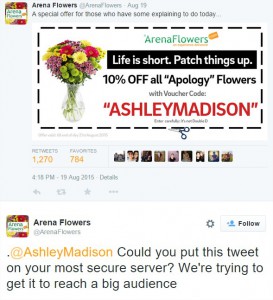Nazis, Nippel und.. err, Facebook.
Gerade eben ging folgender Rant durch meine Timeline: Stephanie Marie von Mobilegeeks schreibt sich den Frust über all die rechten Deppen auf Facebook von der Seele — und den über Facebooks Reaktion darauf.
Facebook würde alles tun, damit Facebook ein sicherer Platz ist. Also, sicher vor nackten Brüsten und vermeintlich falschen Namen. Nicht vor gewaltbereiten Nazis und Euthanasie-Fans.
Tja, wir haben es hier mit einem klassichen Culture Clash zu tun. Und nein, damit meine ich natürlich nicht die Moschee vs Kirche Sache, die ja so vielen Dämlacken aufrichtigen Deutschen ™ so am Herzen liegt.
Sondern den Zusammenstoß zwischen den US-amerikanischen und den deutschen Anstandsbegriffen. Insbesondere dem Verhältnis zur freien Meinungsäußerung. Free Speech ist in Facebooks Herkunftsland eine heilige Kuh, während Sexualität und vor allem eben weibliche Nippel des Teufels sind. Und da Facebook natürlich die Standards des eigenen Landes für weltweit gültig erklärt, darf man sich hierzulande eben auch ungeniert als Rechten Depp outen und seinen Hass verbreiten. Solange sich das irgendwie als Meinung tarnt, wird man dort wenig bis nichts unternehmen. Schon alleine, weil der Personalbedarf für sowas (Beschwere aufnehmen, Text ansehen, reagieren, den unvermeindlichen Fallout bearbeiten) viel zu hoch ist.
Ich höre an dieser Stelle übrigens schon den Einwand: „Dann soll sich Facebook doch gefälligst endlich mal den regionalen Begebenheiten anpassen!“. Ja? Also, so rein hypothetisch, sollen die dann auch auf die Sitten und Gebräuche in z.B. Katar eingehen? Saudi Arabien? Nordkorea?
Überlegt Euch genau, was Ihr da fordert. Bis dahin bleibt: Kontra geben, solche Statements nicht unerwidert lassen, und in Deutschland strafrechtlich verfolgbare Äußerungen (konkrete Drohungen, Holocaustleugnung, Volksverhetzung) nicht Facebook sondern den zuständigen Behörden melden. Das mit der Anzeige geht übrigens ganz einfach, hier mal die Internetwache der Polizei Berlin. (Mit https, ich bin begeistert!)
